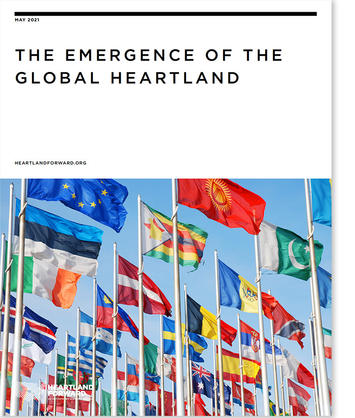When my grandparents migrated to New York from Russia over a century ago, they found a city that was hardly paradise, but one that provided a pathway towards a better life. Life was tough, crowded and always a paycheck from poverty. My relatives were poor, but so was everyone; eventually, they all bought houses or apartments, and entered the middle class. As for crime in their native Brownsville, the home of Murder, Incorporated and other villainous enterprises, it rarely impacted “civilians”; my mother would tell me how a young girl could still walk across Prospect Park without fear of assault.
Today’s urban promise is, however, vastly different — not only in New York, but San Francisco and Los Angeles, London and Paris. No longer cities of aspiration, they are increasingly defined by an almost feudal hierarchy: the rich live well, protected by private security and served by local coffee shops and trendy clubs.
Meanwhile, the working class struggles to pay rent, possesses no demonstrable path to a better life and, as a result, often migrates elsewhere. Crime rates are spiking and homelessness, once an exception, is increasingly widespread. Those very streets once said to be “paved with gold” are now are filled with discarded needles, excrement and graffiti.
Indeed, what we are now witnessing is the decline of former New York Mayor Michael Bloomberg’s description of the city as “a luxury product”. Today, that sense of “luxury” has all but vanished, with modern urban economies promoting class divisions rather than upward mobility. Amid all the hoopla about urban revival, the truth is that entrenched urban poverty in the US — places where 30% or more of the population live below the poverty line — actually grew in the first decade of the new millennium, from 1,100 to 3,100 neighbourhoods.
Even the New York Times admits that, in the past decade, cities have gone from “engines of growth and opportunity” to places where class relations are increasing fixed, with only the upper end of the income spectrum doing well. Gotham’s one percent earns a third of the entire city’s personal income. That’s almost twice the proportion for the rest of the country. But such class disparity is becoming the norm; in the tech haven of San Francisco, which has the worst levels of inequality in California, the top 5% of households earn an average of $808,105 annually, compared with $16,184 for the lowest 20%.
Predictably, those at the bottom of this new feudal structure suffer the most; today, the old saying that “the city air makes one free” all too often means freedom to be poor, to experience endemic homelessness, collapsing public infrastructure and rising crime.
And that was before Covid hit. Already many poor urban residents subsisted on transfer payments or worked in service industries. They were paid, usually poorly, to clean now-empty offices or work in restaurants and hotels. The lockdowns, whether justified or overwrought, have since pummelled these low-income workers; roughly 40% of Americans earning under $40,000 a year lost their jobs last March.
Unlike workers who occupy “the commanding heights” of finance, tech, marketing, and media , these people did not have the option of working from their kitchen tables or moving to suburban locations or smaller cities. Nor could they count on education systems to work their magic; most schools in American inner-city districts, in contrast to many suburbs and smaller cities, remained closed.
All of which meant America’s urban districts were ripe for civil unrest when George Floyd died last May, and these festering conditions exploded into the worst national rioting in decades. Parts of many cities went up in flames, the damage of which was obscured by mainstream media’s mantra of “mostly peaceful protests”. The constant rioting and demonstrations in Portland, once seen as a paragon of new urbanist-led revival, has all but destroyed its downtown, which is now largely bereft of pedestrians.
Read the rest of this piece at UnHerd.
Joel Kotkin is the author of The Coming of Neo-Feudalism: A Warning to the Global Middle Class. He is the Presidential Fellow in Urban Futures at Chapman University and Executive Director for Urban Reform Institute. Learn more at joelkotkin.com and follow him on Twitter @joelkotkin.
Photo credit: Christopher Michel via Flickr under CC 2.0 License.

